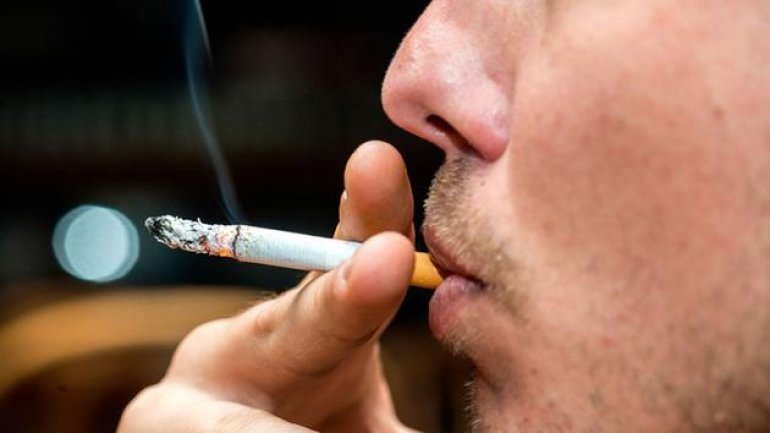Study: Smoking causes extensive damage to DNA
 foto: Shutterstock
foto: Shutterstock
The vast amount of damage that smoking can have on your DNA has been revealed in a new study exploring how tobacco smoke affects cells within the human body, reports CNN.
Consuming a pack of cigarettes every day for a year can cause multiple changes in cells within various parts of the body, according to the study, published in the journal Science on Thursday.
The cells in parts of the body that are directly exposed to smoke are particularly damaged, with 150 mutations found to occur in lung cells within one year, 97 in the larynx and 39 in the oral cavity.
"Tobacco smoking damages DNA in organs directly exposed to smoke as well as speeds up a mutational cellular clock in organs that are both directly and indirectly exposed to smoke." said Ludmil Alexandrov of the Los Alamos National Laboratory in Los Alamos, New Mexico, who led the study.
In other words, it accelerates the occurrence of genetic mutations, increasing the risk of cancer.
Smoking is a risk factor for at least 17 types of cancer, according to the paper, and is estimated to kill 6 million people each year.
Tobacco smoke is a mixture of chemicals, of which 60 are known to be carcinogens thought to cause cancer by aiding the occurrence of mutations within genes. With an increased number of mutations, there's a greater chance that they will happen within known cancer-causing genes.
According to the American Lung Association, men who smoke are 23 times more likely to develop lung cancer than someone who's never smoked, and women are 13 times more likely.
The researchers scanned the genome sequences of more than 5,000 tumors from 17 types of cancer for which smoking is a risk factor. These were obtained from smokers and nonsmokers alike for comparison.
In addition to the mutations, the analysis found a range of "molecular signatures" - patterns that are significantly different from other sequences in the DNA - based on changes to DNA that were linked to people smoking.
One signature was found in tissues directly exposed to smoke, and an unrecognized signature was more widely found in all smoking-related cancers. That mysterious signature appeared to increase the rate of premature mutations and appeared to correlate with age, with the total number of mutations linking to the age when someone was diagnosed.
The results "reveal a picture of direct and indirect effects," said David Phillips, professor of environmental carconigenesis at Kings College London, who also conducted the research, in a statement.
The researchers also looked at any changes in DNA methylation - the process in which a molecule known as a methyl group sits on the surface of DNA to influence gene activity - and saw limited differences between smokers and nonsmokers.
"I think one of the interesting things in this paper is the lack of methylation changes in tumor DNA related to smoking, when we do see significant changes in normal DNA between smokers and nonsmokers," said Dr. James Flanagan, a cancer geneticist at Imperial College London who was not involved in the study.
Flanagan's recent research has found that tobacco leaves a legacy on a smoker's DNA through methylation to influence whether genes are active or silent. He believes it's presumptive to say there's no role for methylation in these changes.
But these new findings still shed valuable light on the way tobacco smoke increases the risk of cancer, particularly in parts of the body that are not actually exposed to smoke.
- Male birth control shot found effective, but side effects cut study short
- Venom of one of world's deadliest snakes might act as painkiller
- Report: Contraceptive rates in poorest countries leap by 30 million users in four years
- Facebook users less likely to die
- Hypochondriacs more likely to develop heart disease, study finds
- Michael Buble's son Noah diagnosed with cancer